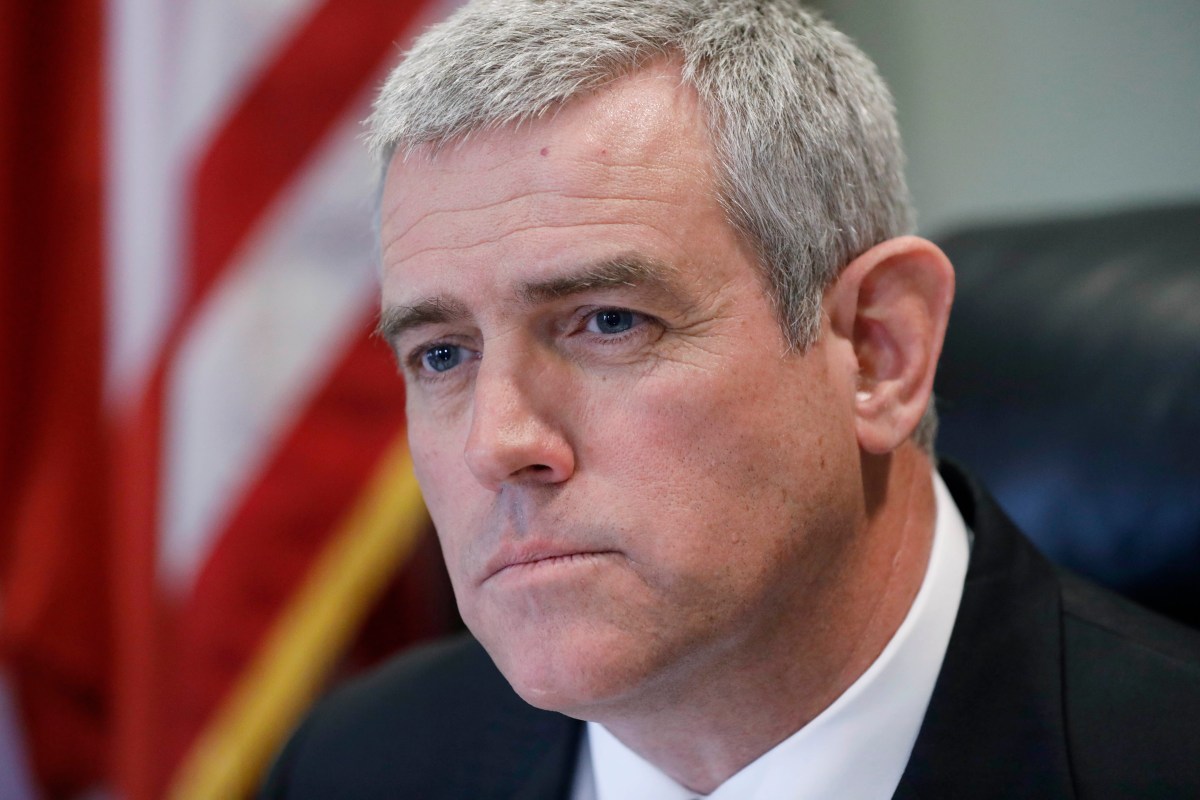Mississippi Today
MAP: Mississippi makes it uniquely hard for low-income new moms to get health care
MAP: Mississippi makes it uniquely hard for low-income new moms to get health care
Low-income women in Mississippi have less access to health care in the months after giving birth than their counterparts in every state except Wyoming.
Mississippi and Wyoming are now the only two states in the country that have neither expanded Medicaid eligibility to low-income working adults, nor extended postpartum Medicaid coverage for new mothers beyond 60 days after birth, according to data compiled by the health nonprofit KFF.
The other nine states that have not expanded Medicaid eligibility have all sought to extend postpartum coverage in recent years. Seven of them, including Alabama, Tennessee, Georgia and South Carolina, have extended coverage to a year after birth. Texas and Wisconsin have sought federal approval to implement shorter extensions of six months and 90 days, respectively.
“We know infant mortality and maternal health are challenges for our state,” said Tennessee Gov. Bill Lee, a Republican who opposes Medicaid expansion, when he introduced his proposal to extend postpartum coverage in 2020. “One in two Tennessee births are covered through our Medicaid program.”
In Mississippi, that number is higher: about six in 10 births are covered by Medicaid.
During the ongoing COVID-19 federal public health emergency, states are not allowed to kick anyone off Medicaid. As a result, women who have given birth since March 2020 will have coverage until the emergency is lifted, potentially as soon as early 2023.
But ordinarily, a Mississippi woman with two kids and a partner together earning $3,000 a month, for example, would lose her Medicaid coverage two months after her baby is born.
The same woman living in Alabama, which has not expanded Medicaid eligibility but approved a 12-month postpartum coverage extension earlier this year, would have health insurance until her baby is a year old. And the same woman living in Arkansas, which has expanded Medicaid but not extended postpartum coverage, would have health insurance before and after her pregnancy, because she would be eligible based solely on her income.
In Mississippi, women whose pregnancies are covered by Medicaid lose the ability to go to check-ups, get treatment for postpartum depression, and receive care for chronic conditions when their babies are just two months old.

House Speaker Philip Gunn, R-Clinton, has repeatedly rejected postpartum Medicaid extension, which easily passed the Senate last session. He has described the proposal as Medicaid expansion, though it would not make more people eligible for Medicaid. Almost every other state that has refused to expand Medicaid has nevertheless extended postpartum coverage.
Last week, some of the state's leading doctors told the Senate Medicaid Committee that extending postpartum Medicaid would not only improve abysmal maternal and infant health outcomes but also save money.
Mississippi has the country's highest infant mortality rate and highest rate of premature births. Dr. Anita Henderson, a pediatrician and president of the Mississippi Chapter of the American Academy of Pediatrics, said the hospital cost of delivering a healthy baby at full term is typically around $5,000 to $6,000. But an extremely preterm baby requires a long stay in a neonatal intensive care unit (NICU), at an average cost of $600,000.
State Health Officer Dr. Daniel P. Edney mentioned that Mississippi is one of just two states that has neither extended postpartum coverage nor expanded Medicaid eligibility.
“What I would beg us to consider is the fact it makes much more economic sense to let Medicaid pay for this rather than the state having to pay for it – either state agencies such as the health department paying, or hospitals paying for it with uncompensated care,” he said.
Pregnant women in Mississippi qualify for Medicaid as long as their family income is below 194% of the federal poverty level– about $4,600 per month for a family of four.
But after giving birth, a Mississippian with kids qualifies for Medicaid only if she has a very low income, earning $578 or less monthly for a family of four.
With such a strict income eligibility requirement, it's all but impossible for anyone with a full-time job to qualify for Medicaid coverage. (And healthy adults without kids never qualify for Medicaid in Mississippi.)
In states that have expanded Medicaid, including Louisiana and Arkansas, adults with incomes below 138% of the federal poverty level, or about $3,200 for a family of four, qualify for health insurance.
An analysis by the consulting firm Manatt found that expanding eligibility for Medicaid would cut enrollment in pregnancy Medicaid by about half, because many women would qualify based on income alone.
Wil Ervin, deputy administrator for health policy for Mississippi Medicaid, told the Senate Medicaid Committee last week that extending postpartum coverage to a year would cost the state about $7 million.
This article first appeared on Mississippi Today and is republished here under a Creative Commons license.
Mississippi Today
North Mississippi business leaders urge Legislature to pass Medicaid expansion

A group of business leaders from northeast Mississippi, one of the most conservative areas of the state, recently wrote a letter to House Speaker Jason White encouraging lawmakers to expand Medicaid coverage to the working poor.
The letter, signed by influential Itawamba County business owner and Republican donor Luke Mongtomery, thanked White for pressing forward with Medicaid expansion legislation and called it “the most important legislative issue for the 2024 session.”
“As this bill now goes to our legislators appointed to the conference committee for consideration, I have faith that a workable solution will be developed that is agreeable among House and Senate leaders,” Montgomery wrote. “Legislation that is good for our future and for all Mississippians.”
Montgomery wrote the letter on behalf of Mississippi Hills Leadership PAC, a committee of north Mississippi business leaders who regularly donate to statewide politicians and dozens of conservative legislative candidates.
Montgomery is the current chairman of the PAC, while Dan Rollins, CEO of Tupelo-based Cadence Bank, serves as the vice vice chairman and David Rumbarger, CEO of Lee County's Community Development Foundation, serves as its treasurer.
The PAC last year donated $50,000 to White's campaign, $50,000 to a PAC White controls, $50,000 to Hosemann and thousands of dollars to lawmakers, according to campaign finance reports with the secretary of state's office.
Business and civic leaders in northeast Mississippi such as Jack Reed Sr., George McLean, Hassell Franklin and Bobby Martin, all of whom have since passed away, had a longstanding history of advocating for political causes in the region.
But in modern times, business leaders from the area are careful to wade into political issues beyond the typical scope of local business interests.
Montgomery told Mississippi Today in a statement that the PAC's leaders support White, a Republican from West, and Hosemann, the leader of the Senate, for realizing the importance of passing expansion legislation.
“The Mississippi Hills Leadership PAC fully supports our House and Senate leaders as they work together to develop a responsible healthcare expansion plan that takes full advantage of available federal support for the benefit of our hospitals, our people, and our future,” Montgomery said.
The letter comes in the middle of House and Senate leaders attempting to hammer out a compromise in a conference committee to resolve the different expansion plans the chambers have proposed.
The House's expansion plan aims to expand health care coverage to upwards of 200,000 Mississippians, and accept $1 billion a year in federal money to cover it, as most other states have done.
The Senate, on the other hand, wants a more restrictive program, to expand Medicaid to cover around 40,000 people, turn down the federal money, and require proof that recipients are working at least 30 hours a week.
Montgomery's letter did not endorse a specific plan, but it did call the House's plan, which expanded coverage to the full 138% of the federal poverty level under the Affordable Care Act, “a reasonable and responsible proposal.”
A potential compromise is for the two chambers to agree on a “MarketPlus Hybrid Plan,” which health policy experts with the Center for Mississippi Health Policy and the Hilltop Institute at the University of Maryland, Baltimore County estimate could save the state money in the long-term.
Speaker White previously told Mississippi Today in an interview that he believes he can hold a bipartisan group of more than 90 House members, a veto-proof majority, together in support of a compromise expansion package.
But the coalition of support in the 52-member Senate is more fragile. The Capitol's upper chamber only passed its austere expansion plan by 36 votes, with only one vote to spare for the two-thirds threshold needed to override a governor's veto.
In addition to Hosemann, the PAC has donated money to the following senators: Kathy Chism, R-New Albany; Rita Potts Parks, R-Corinth; Daniel Sparks, R-Belmont; Chad McMahan, R-Guntown; Hob Bryan, D-Amory; Ben Suber, R-Bruce; Dean Kirby, R-Pearl; Briggs Hopson, R-Vicksburg and Josh Harkins, R-Flowood.
Jack Reed Jr., the former Republican mayor of Tupelo and the CEO of Reed's Department Store, an economic anchor of downtown Tupelo, is also expected to be at the Capitol on Tuesday morning to advocate for expansion.
This article first appeared on Mississippi Today and is republished here under a Creative Commons license.![]()
Mississippi Today
On this day in 1892


April 22, 1892

Fiery civil rights pioneer Vernon Johns was born in Darlington Heights, Virginia, in Prince Edward County. He taught himself German and other languages so well that when the dean of Oberlin College handed him a book of German scripture, Johns easily passed, won admission and became the top student at Oberlin College.
In 1948, the Dexter Avenue Baptist Church in Montgomery, Alabama, hired Johns, who mesmerized the crowd with his photographic memory of scripture. But he butted heads with the middle-class congregation when he chastised members for disliking muddy manual labor, selling cabbages, hams and watermelons on the streets near the state capitol.
He pressed civil rights issues, helping Black rape victims bring their cases to authorities, ordering a meal from a white restaurant and refusing to sit in the back of a bus. No one in the congregation followed his lead, and turmoil continued to rise between the pastor and his parishioners.
In May 1953, he resigned, returning to his family farm. His successor? A young preacher named Martin Luther King Jr.
James Earl Jones portrayed the eccentric pastor in the 1994 TV film, “Road to Freedom: The Vernon Johns Story,” and historian Taylor Branch profiled Johns in his Pulitzer-winning “Parting the Waters; America in the King Years 1954-63.”
This article first appeared on Mississippi Today and is republished here under a Creative Commons license.![]()
Did you miss our previous article…
https://www.biloxinewsevents.com/?p=351711
Mississippi Today
Podcast: Rep. Sam Creekmore says Legislature is making progress on public health, mental health reforms

House Public Health Chairman Sam Creekmore, R-New Albany, tells Mississippi Today's Geoff Pender and Taylor Vance he's hopeful he and other negotiators can strike a deal on Medicaid expansion to address dire issues in the unhealthiest state.
This article first appeared on Mississippi Today and is republished here under a Creative Commons license.![]()
Did you miss our previous article…
https://www.biloxinewsevents.com/?p=351583
-

 SuperTalk FM6 days ago
SuperTalk FM6 days agoChance of parole denied for man who killed 3 Choctaw Indian tribal members
-

 SuperTalk FM6 days ago
SuperTalk FM6 days ago2 arrested after missing man’s body found on side of Mississippi highway
-

 Mississippi News5 days ago
Mississippi News5 days agoWhat this means for local schools
-

 228Sports3 days ago
228Sports3 days agoFrom Heartbreak to Hoop Dreams: Pascagoula Panthers Springboard from Semifinal Setback to College Courts
-

 Kaiser Health News6 days ago
Kaiser Health News6 days agoTo Stop Fentanyl Deaths in Philadelphia, Knocking on Doors and Handing Out Overdose Kits
-

 Mississippi News2 days ago
Mississippi News2 days ago2 dead, 6 hurt in shooting at Memphis, Tennessee block party: police
-

 Mississippi News5 days ago
Mississippi News5 days agoWillis Miller sentenced to 45 years in prison, mandatory
-

 Mississippi News2 days ago
Mississippi News2 days agoForest landowners can apply for federal emergency loans


























